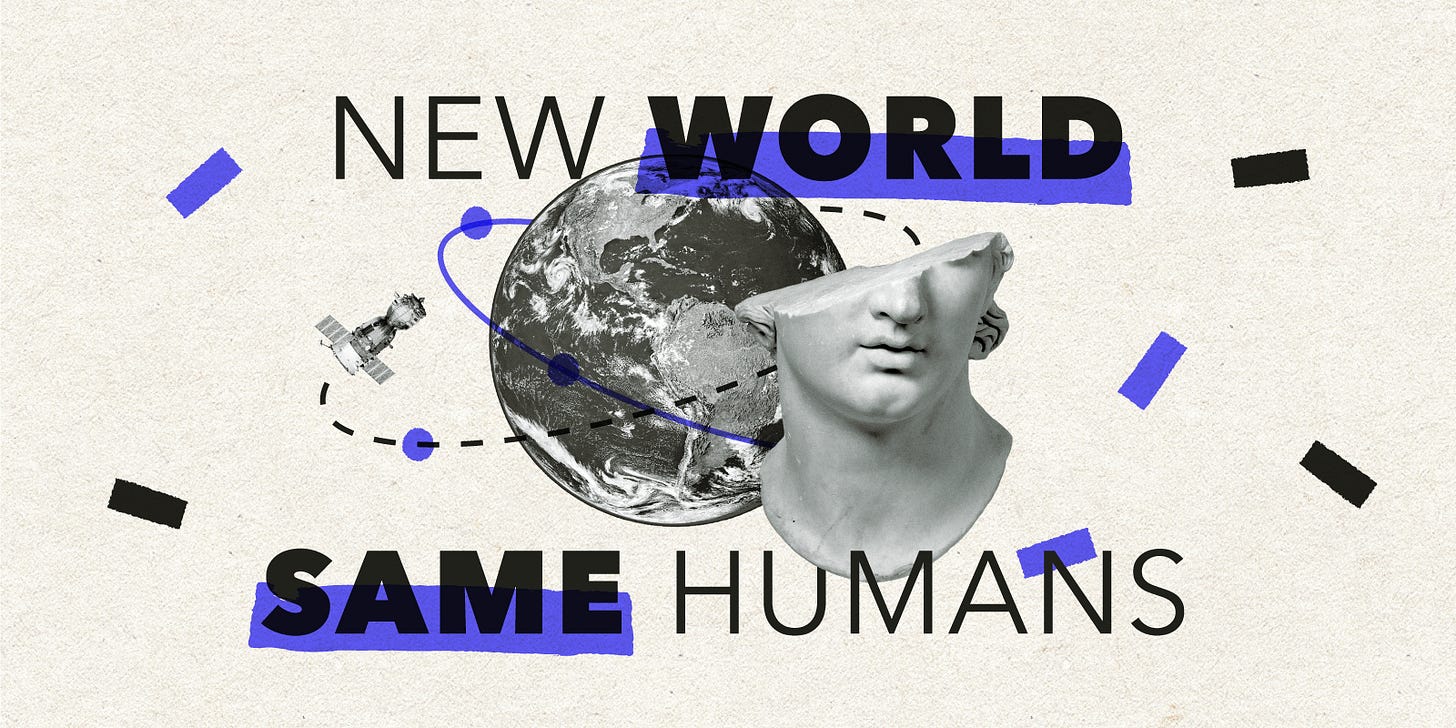Welcome to New World Same Humans, a weekly newsletter on trends, technology, and society by David Mattin.
If you’re reading this and you haven’t yet subscribed, then join 17,000+ curious souls on a mission to build a better shared future 🚀🔮
This week saw the announcement of a new supersonic passenger jet, set to start commercial flights before the end of the decade.
That inspired these reflections, on flying cars, the future we were promised, and the chance we now have to realise it.
Hit play!
If you prefer to read this week’s instalment, go here for the text version of The Future that Never Came.
Links in this week’s instalment
1. United Airlines is set to buy 15 supersonic passenger jets from aviation startup Boom Technologies.
2.
3. In the 1960s the average US GDP growth rate was above four per cent; for the last ten years it’s been stuck below two per cent.
4. The billionaire VC Peter Thiel coined a phrase that’s since become synonymous with the Great Stagnation: ‘we wanted flying cars, instead we got 140 characters.’
5. In 2011’s The Great Stagnation, the libertarian economist and New York Times writer Tyler Cowan floated his ‘low-hanging fruit’ theory.
6. Meanwhile in 2018 the futurist and independent researcher J. Storrs Hall published Where Is My Flying Car?
7. back in the 1970s, says Hall, flying cars really were emerging as a practical reality.
8. DeepMind’s announcement that its AlphaFold AI had solved the iconic protein-folding problem is one indicator that AI’s electricity moment is coming.
9. The Overture is made possible in part by software that allows Boom Technologies to simulate air flow over the fuselage and so find the most fuel-efficient design.
10. Ten years after Fukushima, we’re on the verge of a new era of innovation in nuclear power.
11. Startups such as Volocopter are working on a flying car.
12. Put it all together, and the idea that we’re about the transcend the Great Stagnation seems very real. Tyler Cowan certainly thinks it’s plausible.
Time to build
Thanks for listening this week.
If those who believe the Great Stagnation is coming to an end are right, we’re about to witness a transformative decade.
New World Same Humans will be watching every step of the way, and striving to make sense of what it all means for our shared future.
And there’s something you can do to help with that mission.
If this week’s instalment resonated with you, why not forward the email to someone who’d also enjoy it? Or share it across one of your social networks, with a note on why you found it valuable. Remember: the larger and more diverse the NWSH community becomes, the better for all of us.
I’ll be back on Wednesday with New Week Same Humans. Until then, be well,
David.












